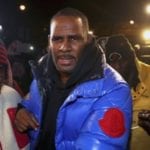 History
History  History
History  Health
Health 10 Everyday Activities That Secretly Alter Consciousness
 History
History Top 10 Historical Disasters Caused by Someone Calling in Sick
 Animals
Animals 10 New Shark Secrets That Recently Dropped
 Movies and TV
Movies and TV 10 Forgotten Realities of Early Live Television Broadcasts
 Technology
Technology 10 Stopgap Technologies That Became Industry Standards
 Weird Stuff
Weird Stuff 10 Wild Facts About Taxidermy That You Probably Didn’t Know
 Travel
Travel 10 Beautiful Travel Destinations (That Will Kill You)
 Miscellaneous
Miscellaneous 10 Modern Marriage Rituals Born from Corporate Branding
 Weird Stuff
Weird Stuff Ten Bizarre Visions of 2026 from Fiction
 History
History 10 “Modern” Problems with Surprising Historical Analogs
 Health
Health 10 Everyday Activities That Secretly Alter Consciousness
 History
History Top 10 Historical Disasters Caused by Someone Calling in Sick
Who's Behind Listverse?

Jamie Frater
Head Editor
Jamie founded Listverse due to an insatiable desire to share fascinating, obscure, and bizarre facts. He has been a guest speaker on numerous national radio and television stations and is a five time published author.
More About Us Animals
Animals 10 New Shark Secrets That Recently Dropped
 Movies and TV
Movies and TV 10 Forgotten Realities of Early Live Television Broadcasts
 Technology
Technology 10 Stopgap Technologies That Became Industry Standards
 Weird Stuff
Weird Stuff 10 Wild Facts About Taxidermy That You Probably Didn’t Know
 Travel
Travel 10 Beautiful Travel Destinations (That Will Kill You)
 Miscellaneous
Miscellaneous 10 Modern Marriage Rituals Born from Corporate Branding
 Weird Stuff
Weird Stuff Ten Bizarre Visions of 2026 from Fiction
Top 10 Must-See Theroux Documentaries
Firstly, if anyone is unfamiliar with Louis Theroux, I suggest you YouTube search some of these documentaries now and watch them. Right now. Secondly, this list is purely subjective, but I’ve tried to rank them in terms of how interesting I found them, how little about the subject I knew before I watched them, and also entertainment and sensationalism value. Louis Theroux is an award-winning, British-American TV journalist, renowned for his ‘Gonzo’ style of journalism – (a subjective style which is told in the first person, with Louis as the “main character”). He became well known in the early 90’s through various newspaper and magazine articles and eventually, in 1998, he landed his first TV show, ‘Louis Theroux’s Weird Weekends’. In these shows he went and spent time with various, (mostly) American, lesser-known subcultures and set out to “discover the genuinely odd in the most ordinary setting”. He later went on to film 2 more seasons, including ‘When Louis met…’ – in which he spends time with some eccentric figures from Britain, as well as filming various specials all the way up to the present year. Here are my top 10 Louis Theroux documentaries with short clips from each.
Survivalism is a movement in which groups of people are actively preparing for a future crisis – these can include changes in the government, pandemics, natural disasters and wars. Louis meets various people preparing for this major “shift” in different ways, including an ex-marine who has founded ‘Almost Heaven’, a small group of conspiracy theorists that claim the New World Order will be in effect soon, and are planning to oppose them. He meets various people who have moved themselves and their families out of traditional suburban life and gone to live miles away from civilization in an effort to protect themselves. He follows these people as they patrol their perimeters at night on the lookout for government troops, and also as they buy supplies in a survivalist store called ‘Safetrek’. The man at the very beginning of this clip is a survivalist called Mike, who lives alone in an underground log cabin he built himself. Also in this clip he goes on to meet a more extreme group called the Aryan Nations – a white nationalist neo-Nazi organization.
This had to be on the list purely because of how incredibly strange the people featured in it are. Among relatively tame alien hunters, such as those who travel to Area 51, in Nevada, he meets the community who run the ‘Little Ale-Inn’ in Rachel, the small town near to Area 51. Seemingly unperturbed by any amount of strangeness in this documentary, Louis meets a man called ‘Thor Templar’ – the self-proclaimed “Lord Commander of the Earth Protectorate”, who claims to have killed more than 20 aliens with gadgets he seems to have built from household materials. The whole thing is too bizarre. Even more so, he goes in search of a ‘Reverend Robert Shaw’, who claims to be able to channel extra terrestrials and Louis is lucky enough to speak to an alien called “Korton” from the system “Koldas”, a Saturn-like planet whose inhabitants once occupied our system but had to move because of interstellar warfare… Their conversation is in the clip.
Very much a companion piece to Martin Bashir’s ‘Living with Michael Jackson’ documentary shown in February earlier that year, ‘Louis, Martin and Michael’ follows Louis’ efforts to arrange an interview and produce a documentary about Michael Jackson. His efforts to liaise through Michael’s friend, Uri Geller, eventually prove futile as Uri denies Louis access to Michael, yet grants Martin Bashir permission instead. The events run alongside Martin Bashir’s documentary, as Louis follows Michael to Las Vegas and meets his “personal magician”, called Majestik Magnificent – who has lived with the Jacksons for nearly 20 years. Louis attempts to get closer to Michael through his family members, and eventually has to pay $5000 to interview Michael’s dad, Joe, thinking it will improve his chances meeting Michael. Ultimately, however, the interview gets boycotted. In his typical style, Louis doesn’t ‘sugar the pill’ so to speak, and asks Joe outright questions about Michaels’ face and beating him when he was young, among other things . The second interview with Joe is shown above, in which he and Majestik get insulted over Louis’ definition of ‘partner’. Despite this, and Joe’s disturbing answers (“he regurgitates all the way to the bank” for instance), Louis keeps composure brilliantly, and despite never seeing Michael himself, creates a great documentary.
Louis explores what it takes to become a professional wrestler in the United States, visiting both the large WCW shows and meeting wrestlers such as Roddy Piper and Goldberg, as well as smaller, more extreme factions of the subculture, namely the AIWF, which are famous for their use of barbed wire and other weapons. He discovers a “school” of wrestling called the ‘Power Plant’ – a place where all professional wrestlers learn their art and along the way meets their hot-headed trainer, Sarge. During his questioning, Louis tries to establish how much of the action in the ring is planned before hand, and to what extent the wrestlers know what’s going to happen. This question angers Sarge, who takes it as an insult to their athletic abilities. It is interesting to see how openly the smaller wrestling organizations talk about the “soap opera in spandex”, and how they plan the storylines, while the bigger corporations give Louis a hard time about it. When Louis visits the Power Plant, Sarge puts him through his paces to prove a point. The amusing result is in the clip above, although it doesn’t show Louis trying to run away, or him throwing up outside.
The principles of Black Nationalism are simply black ‘unity’ and independence from the white society. In this documentary, Louis explores the more extreme spectrum of BN, with ideas bordering on separatism, racism and complete black superiority. He travels to Harlem, New York, and meets various people involved in the movement, including Reverend Al Sharpton – a black civil rights activist, and Khalid Abdul Muhammed, a black separatist dubbed ‘the most dangerous man in America’. The film also focuses on the shooting of Amadou Diallo, a young black man who was shot 41 times by a group of white police officers, with Louis attending a protest for his justice with Reverend Sharpton. A memorable part is when Louis shops with Khalid Muhammed as he reveals his dislike for the white man and how the white race is “absolutely disagreeable to get along with in peace”. Even further along the spectrum is the ‘Israelite School of Universal Practical Knowledge’ – an extreme, all-black group that believe various figures from history including Jesus, Henry VIII and William Shakespeare were undoubtedly all black. He meets this school in the clip above.
Louis Theroux, himself, stated in an interview after finishing this documentary that the Phelps family, (the family at the heart of this film), were the most extreme people he had ever met. Despite this, however, they were very kind, articulate and, especially the younger members, pleasant. The Phelps family, which is headed by Fred Phelps, run the ‘Westboro Baptist Church’ in Kansas – a hate group with its core message being “God hates Fags”. Their twisted interpretation of the bible has lead them to believe that all tragedies on Earth are because of homosexuality, which is considered to be the worst sin of all, and the public’s increasing acceptance of homo and bi sexuality. They were made famous because the church regularly picket funerals of fallen soldiers killed in Iraq and Afghanistan, with signs such as ‘Thank god for dead soldiers’ and ‘God hates fag soldiers’. As with all of his documentaries, Louis manages to keep a level, unbiased opinion of the family despite their extremism, accompanying them on protests and seeing their whole belief “system” for what it is. In this clip, Shirley Phelps explains the basis of their beliefs and tries to claim that ‘Thou shalt not commit adultery’ is about homosexuality, also claiming God “does evil”. As you will see, it’s quite outrageous, but Louis remains utterly calm about it.
In one of my favorite documentaries of his, Louis spends a few weeks in San Quentin prison in San Francisco, one of America’s toughest prisons and home to ‘gangbangers’, rapists and murderers. Louis focuses on a group of prisoners, though not in as much detail as some subjects in his other films. These include the guards, a gang member called ‘Playboy Nolan’ and a man called ‘David Silver’ who is serving 500 years plus 11 life sentences. Throughout the film, the fact that Louis is surrounded by murderers and rapists all the time, not just while in the yard or eating with them, is surreal. During his stay, he starts to focus on friendships between people of the same race, and also relationships in the prison, including a transgender woman named Deborah, who shares a cell with her boyfriend. Despite the gloomy aesthetics of the place, it is home to plenty of interesting people with whom Louis connects in some ways. In other ways, he makes them speak about things a little more than they would like to. In the clip, he speaks to a group of white men in the prison yard about the racial segregation, and their crimes.
‘Law and Disorder in Philadelphia’ and ‘Law and Disorder in Johannesburg’ make up the 2008 Law and Disorder specials, where Louis travels to areas of the world that are plagued with crime and trouble. He rides around with a special policing unit in the city of Philadelphia, and experiences the horrors and threats of gun crime and shootings as they take on the so-called “War on Drugs”. During the episode he speaks to various people who have been arrested by the police for possession of a gun, drug dealers, addicts and even a drug lord. In Johannesburg, he spends time with various private security agencies, including one that “arrests” criminals and beats them. While being a lot grittier and extreme than Philadelphia, it doesn’t feel as serious and despite being present at the beating of a man, and multiple warnings of being shot or mobbed, Louis doesn’t seem too shocked or afraid. Saying this, the scene in which the security firm deal with a disturbance in the street is almost too graphic to watch. Throughout the documentaries, Louis wears his bullet proof vest and does his usual ‘wide-eyed innocent’ routine to get these various people to talk to him, though not in a way he, or anyone watching expects. The clip shows this brilliantly as Louis meets two South African criminals and has a very disturbing interview where one describes how he’d get Louis’ money by cutting his wife’s throat or by putting his child in an oven.
Louis finds out there are fewer male porn performers on the planet than there is astronauts, while on a quest to investigate the American porn film industry, from the point of view of a man in the business. While normally he would be there purely as a journalist, in this episode he gets in relatively deeply with groups that he meets, and in the industry itself, even being offered a part in a porn film. He enrolls in a ‘talent’ agency, and is invited on set during the filming of porn films to find out first-hand about how “easy” it is. He sees the money, and the problems associated with the business, including people destroying themselves with drugs because of it, and also the threat of HIV. He spends time with a (then) up-and-coming pornstar, J.J.Michaels, who seems ignorant of the risks of the industry, and also discovers an actor called Troy who, while claiming to be straight, appears in gay films, and is as the industry says, “gay for pay”. In the clip, a director named Rob Black tries to get Louis into the industry with Louis claiming it’s “not something people in England are ready to see”.
Louis gets to grips with the white supremacist and neo-Nazi movement, living among racist people whose world views are among the most abhorrent conceivable. He meets a man deemed the most dangerous racist in America, Tom Metzger, who was a grand dragon of the KKK in the 70’s, a congressional candidate, and now the leader of a white resistance group. Among others, he meets a mother who pushes her world view on her two 11 year old daughters who regularly sing at skinhead rallies and are seen singing racist songs during an awkward car journey. Throughout this documentary, Louis seems to have two objectives; to see how these ideas influence children who are brought up around them, and also to expose flaws in their thinking and find contradictions. He follows Tom Metzger and his shady “agent” to Mexico and also to a skinhead rally, as well as questioning the two young girls on the morals they seem to uphold (although being too young to understand them and answering in a way that made their mother’s brainwashing apparent). Louis finds Tom Metzger to have an immigrant friend from Peru, for whom he fixes televisions, and this provides a basis for the inconsistencies.
In one part, he visits a man called “Skip” who’s whole family are skinheads/racists. After being accused of being Jewish by them, Louis doesn’t answer because he believes answering would mean he accepts that for some reason it should matter what his religion is, when he doesn’t think it should. Despite threats, surprisingly, Louis keeps this up for a while longer, until the two questioning him walk off and Louis leaves alone. This for me was the most memorable moment of his documentaries, and took quite a lot of balls for him to do, especially after Skip says if he was Jewish he’d “Kick his ass and leave him in the street somewhere”. In the clip above, Louis meets Tom’s Peruvian friend, Oscar, and questions him on the way home about his warped view. Tom gets owned.








